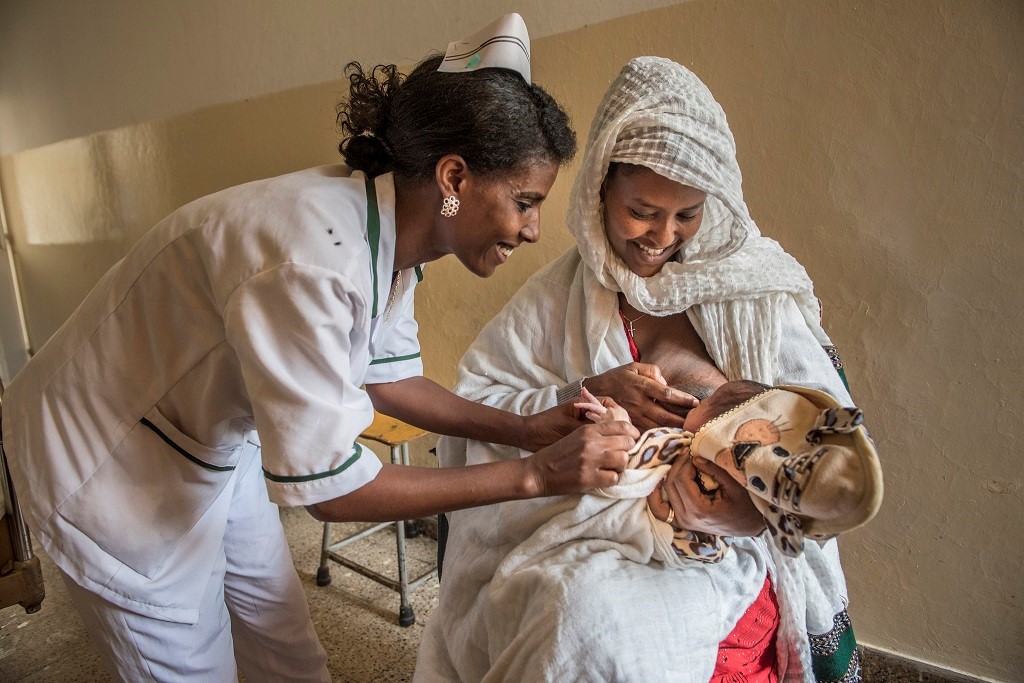Held every three years, the International Federation of Gynecology and Obstetrics (FIGO) World Congress remains the single largest gathering on maternal and infant health anywhere in the world. And MCSP wouldn’t miss it!
We joined 11,000 passionate scientists, researchers, clinicians and policymakers in Rio de Janeiro, Brazil, for an inspiring week of presentations and hands-on learning. We listened to world-renowned speakers and discussed our own lessons on how best to improve conditions for the world’s women and children.
From landscapes as divergent as Egypt and Guatemala, MCSP staff shared our on-the-ground knowledge from the world’s most challenging regions for health. Learn more about how we’re training community health workers, meeting the unique needs of adolescents, preventing postpartum hemorrhage during home births, and more – all with the aim of preventing needless deaths.
Posters
- Adapting a Low-dose, High-frequency Training Approach to Egypt’s Community Health Workers
- Integración de Procesos para el Mejoramiento Continuo del la Provisión de Servicios en Salud Materno-Neonatal: Prueba de Concepto en Guatemala
Presentations
- Advanced Distribution of Misoprostol to Prevent Postpartum Hemorrhage at Home Births In Haiti
- Assessing the Practices of Ghanaian Health Workers through Task Analysis
- Fostering an Enabling Environment to Improve Management of Severe Pre-eclampsia/Eclampsia at Health Center Level: A Case of 10 Districts in Rwanda
- Quality Improvement Strategies in Kenya Result in Better EmONC Services
- Why Experience of Care Matters for Maternal Health Outcomes: Early Learning from Guatemala and Nigeria
- Assessing Community Health Nursing Students’ Knowledge and Skills after Equipping Skills Labs
- Connecting the Youngest Parents to Health Services: Gaps, Lessons, and Opportunities
- Gestational Age Estimates at Rajasthan Health Centers: Adequate for Antenatal Corticosteroid Use?
- Clinical Governance and Quality of Maternal & Newborn Care in Selected Health Facilities in Nigeria
- Development of Obstetric Ultrasound Service Delivery Assessment Tools in the Context of the Zika Epidemic
- Strengthening Referral Networks for Reproductive, Maternal, Newborn and Child Health Services
- Maternal & Perinatal Death Surveillance and Response Gaps and Opportunities in Four sub-Saharan African Countries: Moving from the Global to the Local
- Use of Maternal and Newborn Data for Decision-Making by Health Workers in Selected Facilities in Ebonyi and Kogi States, Nigeria
- Assessing Communication and Transport Protocols in Three Health Referral Networks in Haiti

